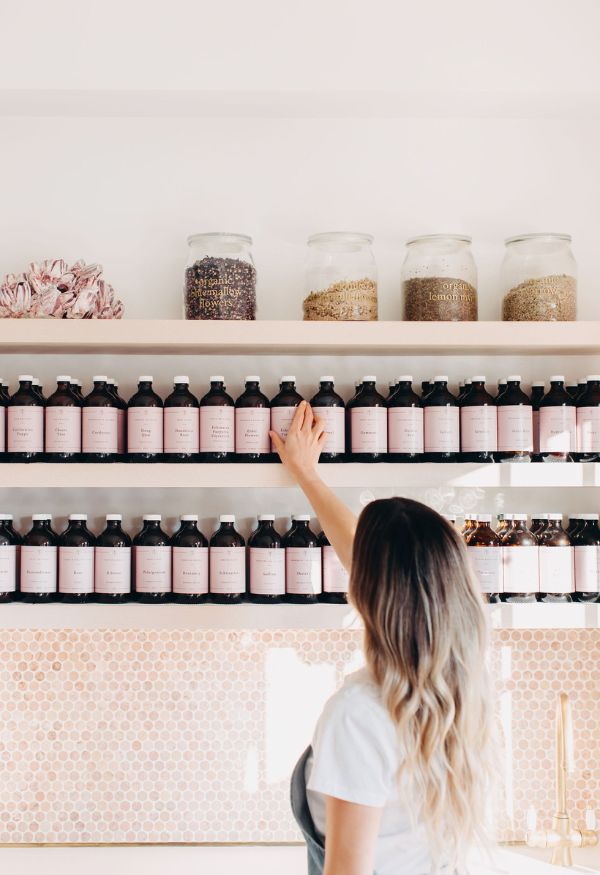Our team will be taking a very well-deserved break over the Christmas and New Year period. Be sure to pop in and collect your remedies before we close at 1 pm on Wednesday, 24th December, to ensure you have enough until we reopen our doors at 9 am on Friday, 2nd January in the new year.
Our team will be taking a very well-deserved break over the Christmas and New Year period. Be sure to pop in and collect your remedies before we close at 1 pm on Wednesday, 24th December, to ensure you have enough until we reopen our doors at 9 am on Friday, 2nd January in the new year.
How To Get On Top Of Urinary Tract Infections | with Laura Bond
September 03, 2023 2 min read

Unfortunately, many women are familiar with the symptoms of Urinary Tract Infections (UTIs): a strong urge to urinate, a burning sensation when urinating and pelvic pain.
Urinary Tract Infections occur when bacteria enter the urinary tract from the urethra. From there the bacteria can travel to the bladder or kidneys. While a course of antibiotics is often unavoidable, they can wipe out the beneficial bacteria, setting the stage for another infection to occur.
The Vaginal Microbiome
You have probably heard of the ‘gut microbiome’ the collection of bacteria which plays a key role in your overall health. Like your gut, the composition of bacteria in your vagina can affect everything from fertility and miscarriage to bacterial vaginosis and urinary tract infections.
The vagina is dominated by Lactobacillus bacteria which help keep our reproductive tract slightly acidic. This acidic environment helps reduce the risk of infection. Research shows lower levels of Lactobacillus increase the risk of UTIs [1]. Some of the most common reasons for these bacterial alterations are antibiotics, the contraceptive pill or a drop in oestrogen – which is why UTIs are so common in post-menopausal women [2].
So, what are the best ways to boost the populations of this friendly bacteria?
- Oral Probiotics: One study found that taking a combination of Lactobacillus reuteri RC-14 and Lactobacillus rhamnosus GR-1 cut the number of UTIs recurrences by more than half over the course of 6 months [3].
- Vaginal Probiotics: Using probiotics vaginally can be a game-changer for people with recurring UTIs and this is part of the treatment plan we use at Floralia. One recent clinical trial showed that Lactobacillus crispatus was given vaginally it significantly reduced the recurrence of UTIs in 100 premenopausal women [4].
- Diet: Focus on prebiotics foods like onions, garlic, artichoke, cooked and cooled potatoes, along with fermented foods like live yoghurt, kombucha, miso, tempeh, kimchi and kefir.
Along with having a healthy wholefoods diet (with plenty of filtered water!) certain herbs and vitamins can help keep the urinary tract healthy. Some of these include:
- Vitamin C: This helps to acidify the urine, creating a hostile environment for infection-causing bacteria.
- Uva Ursi: This contains the glycoside arbutin, which has antimicrobial properties which tighten and tone the mucous membranes of the bladder wall, helping to reduce inflammation and prevent micro-organisms from attaching.
-
Vitamin D: The sunshine vitamin plays a key role in immune regulation and preventing infections. Recent research suggests low levels of D are associated with UTIs.
[1] https://www.ncbi.nlm.nih.gov/pmc/articles/PMC5746606/,
[2] https://www.ncbi.nlm.nih.gov/pmc/articles/PMC6502976/
[3] https://pubmed.ncbi.nlm.nih.gov/22782199/
[4] https://pubmed.ncbi.nlm.nih.gov/21498386/
Looking for one-on-one guidance and support? You can book a one-on-one consultation with Laura here. As well as offering functional medical tests, Laura provides meal plans and recipes as part of her consultation.
Laura is a qualified Nutritional Therapist who is passionate about women’s health. Laura is able to run lab tests for clients as well as create bespoke meal plans tailored to the clients’ needs.
Also in Journal

Why Consider Stool Testing For Children? | with Michele Grosvenor
December 08, 2025 3 min read
Read Morejoin the family
Receive exclusive wellness content curated just for you, delivered straight to your inbox. Get the latest insights from the Floralia team of experts and be the first to know about product launches, programs, research, treatment offers, and VIP events.

Festive Season Online Orders.
Our team are taking a well-deserved break over the festive season until January 2nd.
Any online orders placed between December 24th and January 1st will be lovingly prepared and dispatched as soon as possible once our team returns. Please allow an extra day or so for us to get your remedies and supplements. We appreciate your patience and understanding, and wish you a beautiful and restful holiday season.
If you have any questions, reach out to us via email at hello@floraliawellness.com.au, and we’ll respond to you in the new year.


